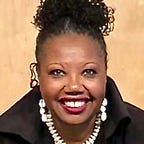Neutralizing Coded Language
Last week, I posted an observation surrounding coded language and received a comment and question about “neutralizing coded language” to “shift language either by changing the words associated or negative connotation.” I must share that I pondered the question carefully. I contemplated the meaning of neutralizing, then tolerance two descriptions often referenced as necessary for moving the conversation around race. My immediate response highlighted the importance of knowing the actual history. I then examined what learning the real history meant to me.
As an African-American taught in the United States, the material provided in public school classrooms in New Jersey influenced an assimilation of a dominant ideology supported by the distorted story behind the inception of the United States that remains steeped with s/heroes that promoted whiteness. In the 8th grade Ted Baker, an African-American male teacher, assigned to teach Black History at Junior 3 opened my eyes to the world I previously was unaware. From that moment, I sought information and text that highlighted African captives enslaved experiences in the United States and other countries. During my early years, locating text was challenging; however, since has become abundant in context and content.
The largest shift in exploring the real history is the actual study of whiteness as a phenomenon worthy of researching. The framing of a dominant ideology embedded in white supremacy that perpetuated white privilege highlighted the lived experiences that people of color endured. The African-American experience up to that point was met with blame and denial, just pull your selves up by your bootstraps. Grasping the origin is necessary to unravel the myths before identifying oppressive coded language used to create cognitive dissonance around differences.
First, take the time to search for the old messages received about race. Racism is taught, not inherited; therefore, facing one’s own conscious and unconscious mind requires having an honest conversation about how this mindset serves you, your sense of self-worth, self-value, your identity, and your sense of belonging? I framed this inquiry as a self-reflective exercise because it will help reveal the foundation to your automatic reaction.
For example, R. J. McGee, an anthropology professor at Texas State University, announced to his class “Modern humans did evolve in Africa roughly 200,000 years ago, meaning all non-Africans are descended from people in African between 50,000 and 80,000 years ago.” White students walked out of his class. Ask yourself, why was Professor McGee’s comment threatening? What disrupted the dominant ideology of the American Dream?
The second recommendation for decoding language is expanding one’s knowledge beyond the standard history books and education provided in American public schools, universities, and religion. In my work, I witness the depths of implicit racial bias (unconscious judgments/behaviors accumulated about racial differences) and the influence of individual and systemic institutions (schools, churches, organizations, and social media) to embed further confirmation bias (reinforce racist beliefs). To understand racism, one must grasp how discrimination and marginalization fuels the web of systems to oppress groups of people.
If you would like to share your journey with others, seek out organizations that support self-learning such as NiOT or others. Finally, I want to thank you for reading my heart thoughts and welcome you to return next Monday as I continue to unfold decoding language.
Peace and Blessings,
Simona L. Brickers
Affective Leadership Language Practitioner
